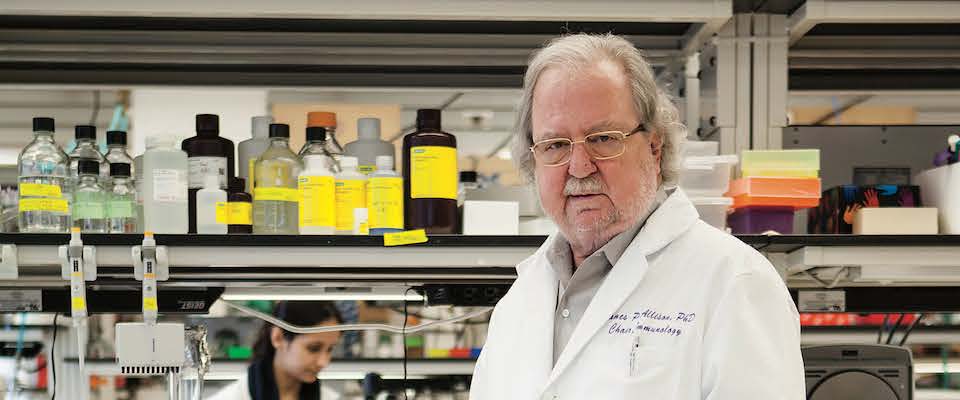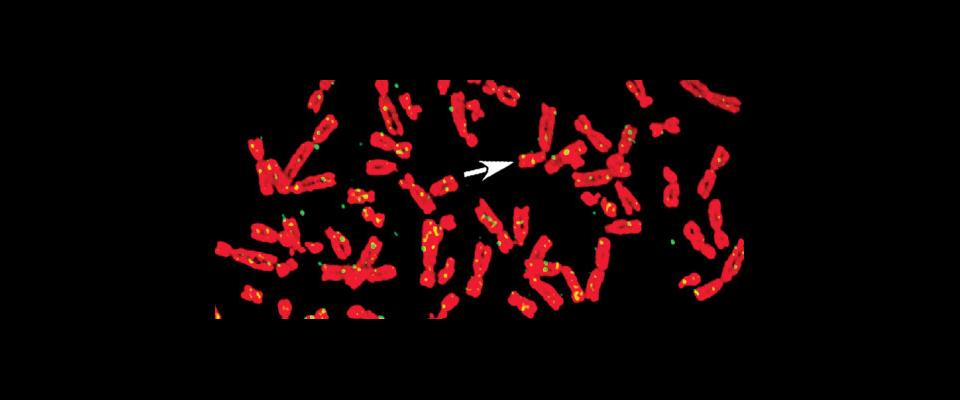Want to live forever? Be a tumor. We may eventually download analogs of our brains into computers and thus achieve a certain kind of immortality, but dramatically extending the functionality of the human body is looking problematic. Cancer cells, on the other hand, can propagate endlessly.
Which once again shows that life is inherently unfair, even in death. Why should insensate and destructive carcinomas enjoy the boon of immortality while we sentient human beings are preordained to decline and ultimate oblivion?
Even more dispiriting: it may be precisely because cancer cells can live forever that we can’t.
“We should care more about health span than lifespan,” says Collins.
In a recent talk about aging and immortality at Mulford Hall for the Science@Cal lecture series, UC Berkeley professor of biochemistry, biophysics and structural biology Kathleen Collins explained how human tissue is essentially a clock, and once it starts ticking, you don’t get to rewind it. Each chromosome in every human cell has a specialized cap known as a telomere. These telomeres are critical to cell replication, and they are also finite and nonrenewable. They erode at each cell division, getting shorter as time progresses. Too, telomere length can be correlated with longevity. If you have long telomeres, you’re aces. Short telomeres, and it might be time to go coffin shopping.
An enzyme known as telomerase elongates telomeres. Telomerase, observes Collins, is active in human embryos but not in adult human tissues. Telomerase function declines as we age: The clock ticks and our telomeres shorten, drawing us ever closer to that moment when the metaphorical alarm rings.
“Without telomerase, we see an erosion of telomere amount with each cell division,” says Collins. “Ultimately, the tissue can’t renew itself.”
Cancer cells, on the other hand, can activate telomerase, thus assuring infinite replication. So why not figure out some way to lengthen telomeres in normal human tissue, thus extending life spans indefinitely? Because then it wouldn’t be normal human tissue anymore: It’d be cancer.
Indeed, it may well be that dampening telomerase is essential to maintaining the relatively long life spans (when compared to mayflies, dogs or dairy cattle) that human beings enjoy.
“It’s possible that the shutdown of telomerase provides a barrier to cancer, in that it prevents cell ‘immortalization,’ ” says Collins. “There seems to be kind of balance in play—human lifespan is limited by cancer to a degree that compares with tissue failures (from aging). It’s kind of one thing or the other.”
Pretty depressing stuff for immortality enthusiasts who’d hoped to avoid the cyborg or brain-in-a-computer routes. But that’s not to say there’s no point to research aimed at extending—or rather, improving—human longevity, says Collins. An immediate goal should be the fastidious husbandry of the telomeres you do have.

“We should care more about health span than lifespan,” says Collins. “For example, we know that chronic viral infections (such as HIV or hepatitis C) result in extremely short telomeres in blood cells. So it would be prudent to take precautions to avoid infection.”
Further, says Collins, stem cell research remains a promising avenue for tweaking human longevity—to a point. Telomerase is highly active in stem cells, which can produce various types of tissue. Conceivably, you could put stem cells in a culture, juice them up with telomerase, and introduce them to flagging tissues.
“They could start dividing like the cells in a 2 year old,” says Collins, “but would they ultimately end up cancerous? That’s the big question, and it’s a complex one.”
A proper goal for stem cell researchers, continues Collins, may be a modest reset rather than a complete stopping of the biological clock.
“Again, we’re getting back to a reasonable but still highly desirable extension of health span rather than immortality,” says Collins. “The key could be relatively brief exposures of telomerase for specific tissues. We might be able to derive benefits while avoiding malignancies.”
But we also are obliged to recognize the genetic hands we’re dealt. Some fortunate people come into the world with long telomeres, observes Collins. At the other end of the bell curve, some folks have to deal with truncated telomeres.
“Either way, life span can be correlated with telomere length,” Collins says. “The fact is that the clock runs slower for some people than others.”






















